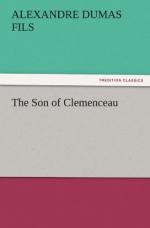But, as for the third or fourth time, the student was on the verge of quitting his haven, another interrupter arose. Pausing at the head of the bridge, prompted by natural caution or instinct, for the officer remained prudently invisible to her, the girl, with the violin-case, looked over her shoulder and beckoned to some one on the further side of the astonished student.
The desert was becoming animated, indeed, as he had wished, for, in the hazy opening, a man appeared, carrying under one arm what seemed a musket or blunderbuss, while leaning the other hand on a staff which might be the one to rest the firearm on. He had a flat felt hat on, with wide shaggy margins, ornamented with a yellow cord in contrast with its inky dye, and a dingy, often mended old cavalry-soldier’s russet cloak, covering him from a long, full grey beard to the feet, encased in patched shoes. The aspect of a Jew peddler in the pictures of the Dutch school, who had armed himself to defend his pack of thread and needles on the highway.
But, as before, nearness dispelled the romantic conceit: the supposed gun resolved itself into a Turko-phone, or Oriental flute, while, on the other hand, the bright eye and well-shaped features, with the venerable impression suggested by the beard, lifted the wearer into a high place for reverence. Just as the girl was unrivaled for beauty, this man, a near relative, perhaps her father, would have few equals in the councils of his tribe.
While not old, spite of the grey in his beard, illness had enfeebled him, for he needed the walking-staff. The brisk pace of his daughter had left him far behind and it cost him an effort to make up for the delay. But in parental love he found the force, and quite nimbly he passed the student without observing him in his haste to join his daughter.
At the sight of him coming, she had not waited for his arm, but retaken her course. She was half way over the bridge when he began to ascend the gentle slope, and when he was arduously following with the summit well before him, the officer emerged abruptly from his covert. He must have been calculating on this moment and this separation to which Baboushka had no doubt contributed. She now loomed into view. Repulsed by the Jew in his detestation of beggars—for while the Christian accepts poverty as a misfortune to which resignation is one remedy, he regards it as an affliction to be violently removed—she hesitated to continue her annoyance. The bridge was so narrow that he had no difficulty, thanks to the length of his arms, in placing a hand on each rail, so that, as he bent his broad, smiling face forward between them, he effectively barred the way. With a tone which he intended to be winning and tender, but which nature had not allowed him to modulate very sweetly, he said:




